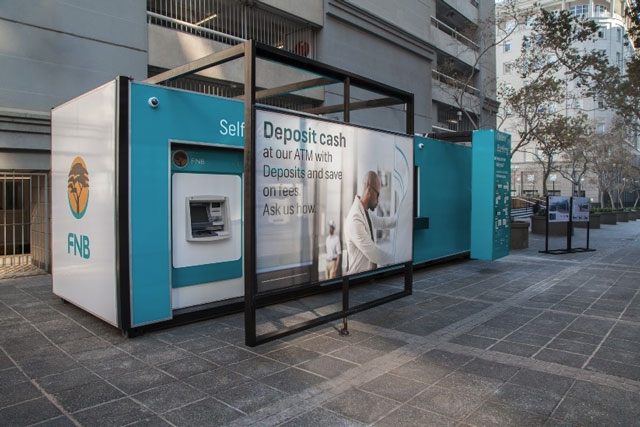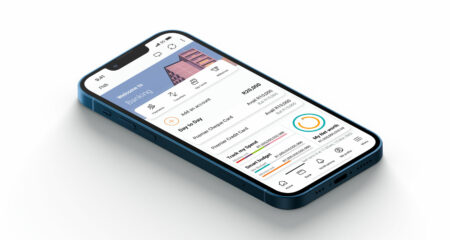
People who previously did not have access to formal banking services in rural areas can now rely on mobile banking units to do their banking.
FNB on Tuesday introduced the mobile banking units, shipping containers which are transformed to become a fully functional bank branch, with infrastructure such as an ATM to withdraw money and an ADT to deposit money.
“We wanted to make sure that banking is truly inclusive,” said Lee-Ann van Zyl, CEO of FNB Points of Presence. FNB had mobile banking units in the past, but these needed to be updated with features to suit the needs of customers, she explained.
A container presented a cost-effective solution. It is also flexible in that two or three more containers can be fitted to the existing container to extend service offerings to meet the changing banking needs of the surrounding community, she explained.
“Everything you can do at a branch, you can do at the mobile banking unit space,” said Van Zyl. This even includes online banking and other sales and services. Customers can also open savings and investment accounts and apply for loans. Staff such a tellers and consultants are present at the mobile branch to help customers. “It’s not like we’re dropping off a container and expecting customers to help themselves,” she said.
It takes three months to convert the container into a banking unit, with all the features of a branch. The unit is intended to have a “permanent presence” in remote areas, and could possibly last for five years, said Van Zyl. A lower-end unit is worth R1,7m and an upper-end unit is worth R2,5m, she explained.
The first mobile unit was initially intended for the community in Mutale, Limpopo. However, due to the tornado that struck Phumlani Mall in Tembisa, the unit is being temporarily redeployed there. FNB plans to roll out four units before the end of the year, said Van Zyl.




